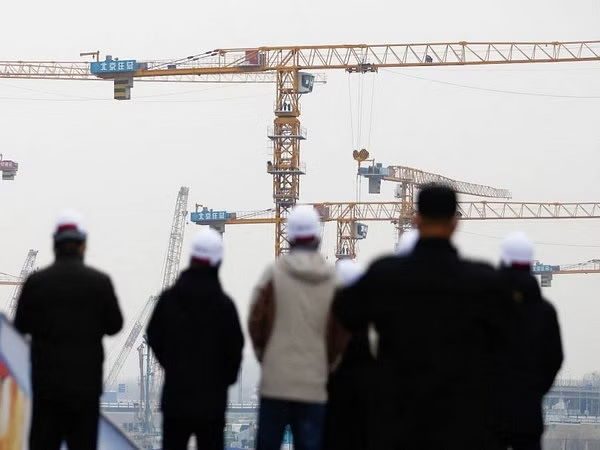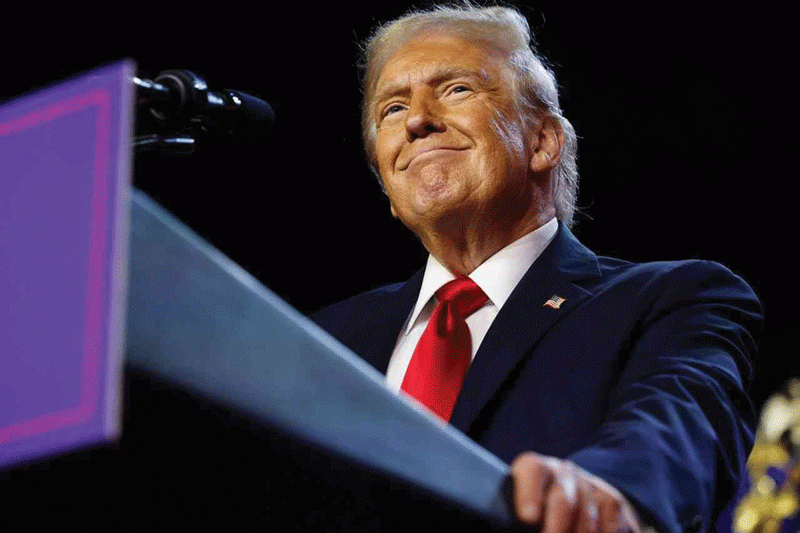
China's unrealistic goals are hurting its economic growth prospects and it has backed off its yearly economic growth target resulting in pummelled consumer spending, manufacturing and trade, reported Khabarhub.
In 2022, China has set its GDP growth target at more than 5 per cent and the claimed achievement has been around 3 per cent.
The 'Two Sessions', the annual plenary sessions of the 14th National People's Congress (NPC) and the Chinese People's Political Consultative Conference (CPPCC), indicate why the Chinese GDP is going to plummet in the coming years.
There have been several factors that have led to the current environment and it has become increasingly apparent that China is going to attempt to repeat its historical toolkit. Namely, that of accumulating foreign investment to prop up the economy until the reality matches the propaganda, reported Khabarhub.
After three years of forcing people to stay indoors due to the state policy, China has taken back its own state policy of zero COVID and opened up the economy.
However, the real estate crisis where Evergrande collapsed after years of uninhibited expansion shows the real state of China's economy. In a normal economic scenario, such a situation would have never been allowed to happen and China was forced to bring out the riot police and water cannons in response to the defrauded people that it claims to serve, reported Khabarhub.
The real state of the Chinese economy will have worrying consequences on the world stage. A significant point of concern has now become the debt traps that China has embedded in Africa where they are building substandard infrastructure projects and forcing governments to repay the loans despite the projects not being operational past their due dates of completion.
Moreover, China's Belt and Road initiative is slowly sliding down into open banditry and coercion on the world stage rather than a juxtaposition of the West that it was supposed to be, reported Khabarhub.
- Zanu PF looks down on Tonga people: MP
- Africa must forgo gas exploration to avert climate disaster, warn experts
- Africa must forgo gas exploration to avert climate disaster, warn experts
- Zim under pressure as headwinds torment China
Keep Reading
Chinese political goals for the coming year ensure that the focus will be on foreign investment, but the geopolitical realities ensure failure. China will inevitably antagonize the very countries it is seeking aid from.
The very fact that this balancing act exists ensures that China will never be able to meet its projected GDP growth rate, reported Khabarhub.
For several years to come it will continue to falsify data and threaten the international community to maintain its charade as a relevant world superpower. It plans to solicit nearly USD 550 billion in the form of special local government bonds while at the same time increasing defence spending by nearly 7.2 per cent to USD 225 billion in 2023.
The nature of these actions contradicts its official propaganda messaging on seeking 'peaceful' reunification with Taiwan. At the same time, vague messaging about ensuring self-reliance in the tech industry is another reason to believe that over the course of this year, control over the economic narrative will be more important than meaningful growth and investment, reported Khabarhub.
Another area of concern is the way China is defaulting on its promises during COP27. The official story is that the authorities themselves are trying to crack down on carbon data fraud while encouraging further investment in wind and solar projects.
Another significant message emerging from the 'Two Sessions' is about China loudly refuting the growing concern about the workforce and the so-called 'population dividend'.
While there have been no state interventions in this regard, there have been disturbing rumours about lowering the legal age of marriage because of the declining birth rate and the ageing of the workforce, reported Khabarhub.
The majority of voices among Chinese economists share the view that demographics will no longer continue to be a driver for economic growth.
Lacking the background of capital investment and coupled with a devastated populace, the economic prospects of China are dim.











